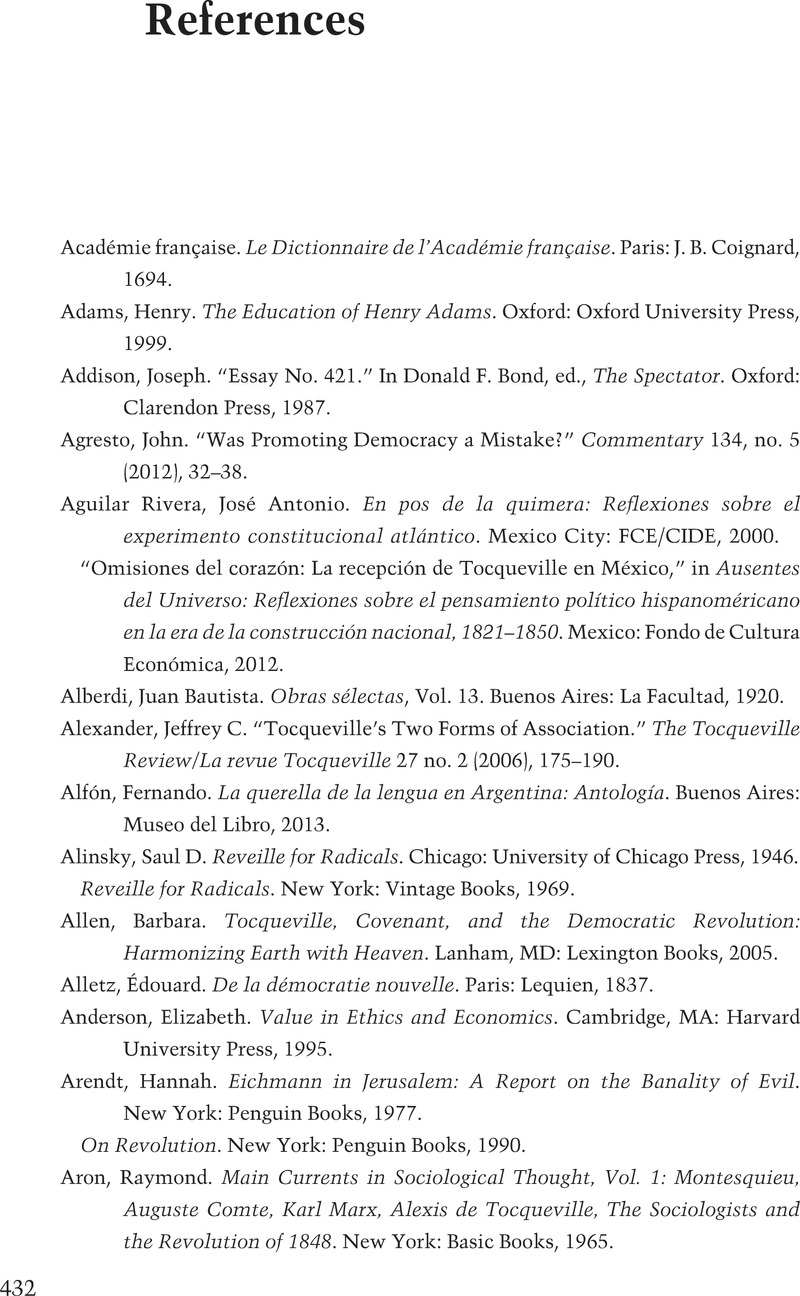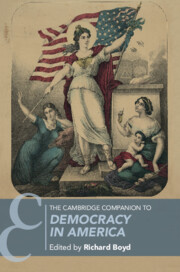Book contents
- The Cambridge Companion to Democracy in America
- Series page
- The Cambridge Companion to Democracy in America
- Copyright page
- Contents
- Contributors
- Acknowledgments
- Chronology
- Abbreviations of Tocqueville’s Major Works
- Introduction
- Part I Sources and Contexts
- Part II Receptions and Applications
- Part III Genres and Themes
- Part IV Democracy’s Enduring Challenges
- References
- Index
- Series page
- References
References
Published online by Cambridge University Press: 23 March 2022
- The Cambridge Companion to Democracy in America
- Series page
- The Cambridge Companion to Democracy in America
- Copyright page
- Contents
- Contributors
- Acknowledgments
- Chronology
- Abbreviations of Tocqueville’s Major Works
- Introduction
- Part I Sources and Contexts
- Part II Receptions and Applications
- Part III Genres and Themes
- Part IV Democracy’s Enduring Challenges
- References
- Index
- Series page
- References
Summary

- Type
- Chapter
- Information
- The Cambridge Companion to Democracy in America , pp. 432 - 461Publisher: Cambridge University PressPrint publication year: 2022

